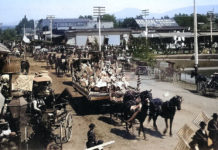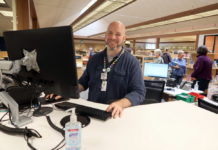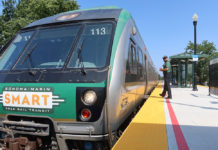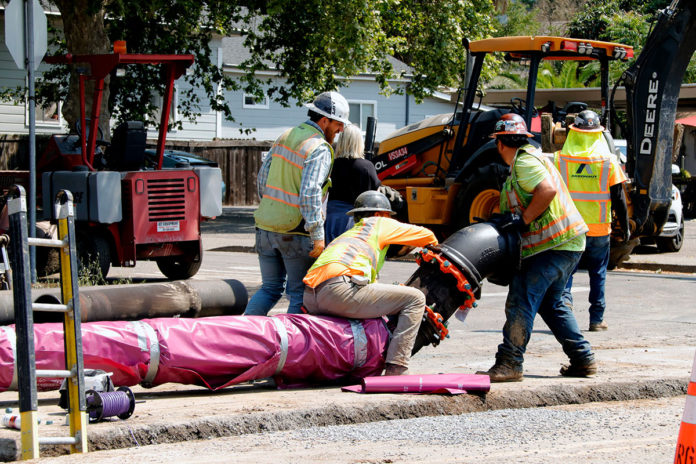
Some of Healdsburg’s key streets are the scene of extensive road work these days as some two miles of purple pipe are installed to deliver treated, but not drinkable, water to irrigate city parks and other landscape areas.
Work on the project began in June and is anticipated to continue the rest of the year. Though it’s been in the planning stage for some time, the City Council gave its approval to the $4.8 million project in March, awarding the contract to low-bidder Argonaut Constructors of Santa Rosa.
The first stage of the project took place in mid-June on Kinney Road, west of Highway 101 near Opperman & Son Inc. At about the same time the pipe was installed on Kennedy Lane just east of the freeway, from there turning up Healdsburg Avenue to University Avenue, and at the Memorial Bridge.
This phase of construction is ongoing, and vehicle traffic is affected by work crews at present.
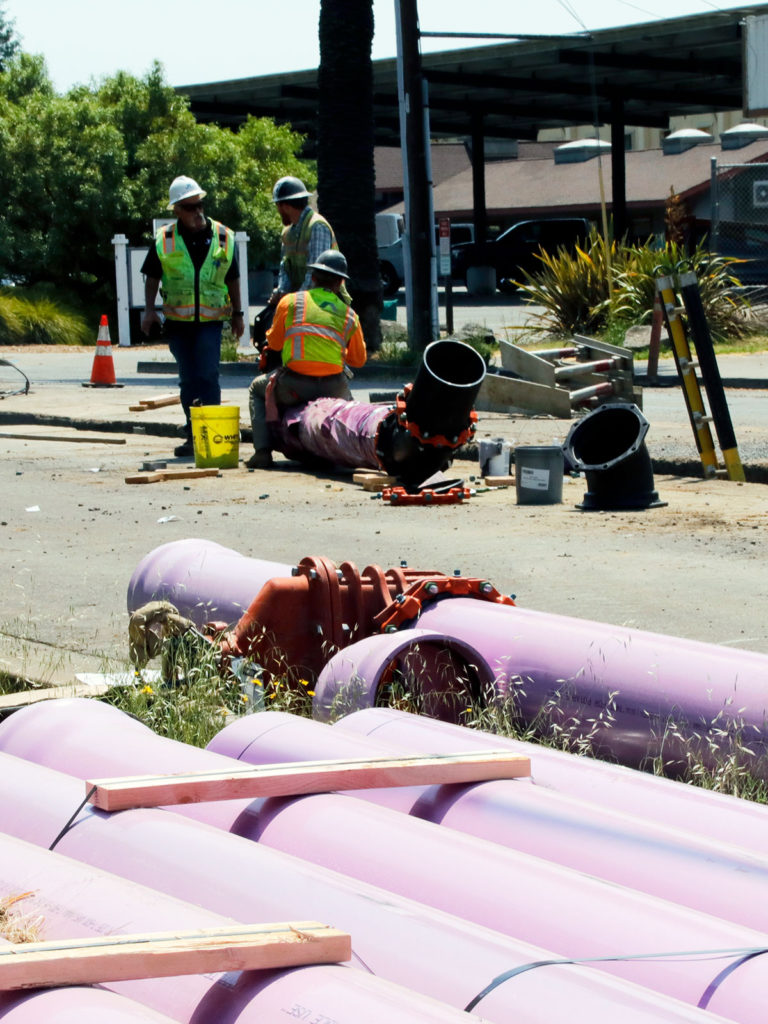
What Color Is Your Pipe?
Purple pipes are used so they are clearly distinguishable from regular water delivery systems, to avoid accidental mixing of drinkable water and treated wastewater.
Recycled water is used in many places and for many uses around Sonoma County, according to the Sonoma Water Agency, at sonomawater.org. Recycled water is used across Sonoma County for agriculture, including vineyards and other crops in Sonoma Valley.
Several cities in Sonoma County also use recycled water for their playing fields, such as Sonoma and the Rohnert Park school system.
In Windsor the high school, golf course and some residential neighborhoods use recycled water for their landscaping, according to Sonoma Water.
Similarly, Healdsburg’s purple pipes will bring treated water for irrigation of the open grass fields at Recreation Park, Healdsburg Elementary School, Giorgi Park, Oak Mound Cemetery and the greens at Tayman Park.
This project is estimated to offset the need for 27 million gallons of water annually.
The project as designed consists of approximately 10,000 feet of 12-inch pipeline, 675 feet of 4-inch pipeline, four connection turnouts and a bulk fill station.
Eventually the project may be extended farther north up Fitch Street to Healdsburg Junior High, Gibbs Park and eventually up to the Healdsburg Community Center, which would require another 2.7 miles of pipeline. However, this first round of funding is only enough to support delivery to the central part of town, and not its northern parks.
This phase of the project is supported by a $7.1 million grant received from the state that funds about half of the overall recycled water pipeline infrastructure. It is hoped the remainder of the project will be offset by another state grant in the amount of $8.5 million, a grant that has been applied for but not yet approved.
Healdsburg’s wastewater treatment facility is located off Westside Road, at 340 Forman Lane. Its surface is covered with a solar power generating array that makes double use of the facility’s footprint.
According to Sonoma Water, the district agency that manages water resources, “Recycled water is cleaned wastewater from homes and businesses. Water from sinks, toilets and indoor plumbing goes to a treatment facility. Advanced treatment processes are used to remove bacteria and pollutants. Treated wastewater undergoes extensive testing to ensure that it meets strict standards set by the California Department of Health Services.”
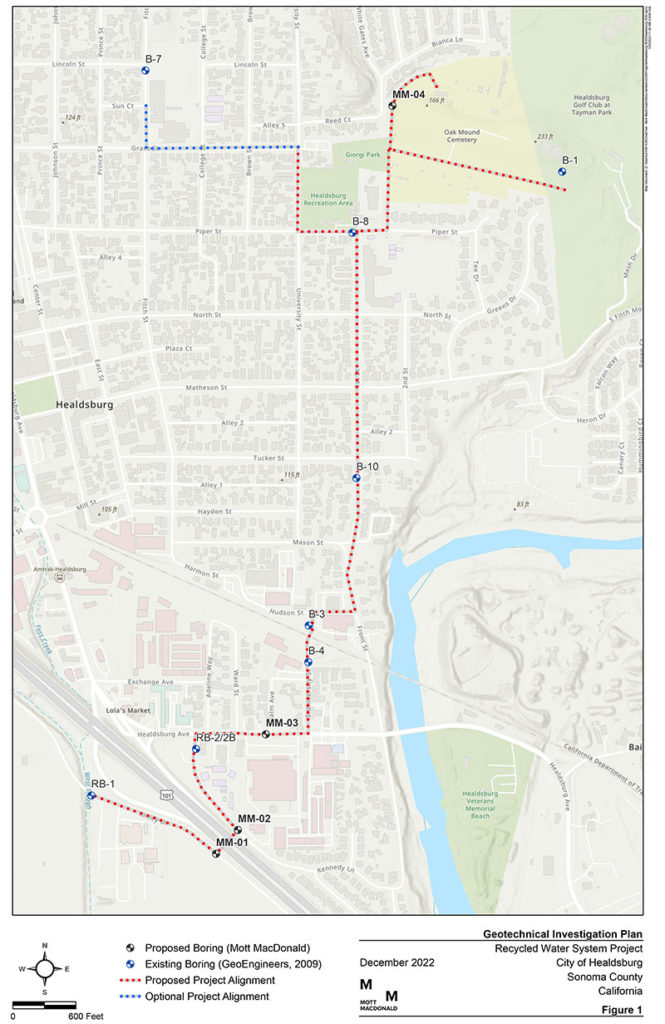
Why Recycle Water
The city’s wastewater irrigation system is one way to deal with the limited availability of water from natural sources. Healdsburg currently gets about 80% of the city water supply from the upper Russian River, but water shortages from Lake Mendocino are expected in the future.
The city’s utility department focused on two means of compensation: more water from Lake Sonoma by improving well fields in Dry Creek, one of the long-term projects the city hopes to underwrite with the new water and wastewater rate increases.
The other contributor to decreased water sources is to employ treated wastewater for uses that do not require fresh water.
“With that in mind, we have been working on the Municipal Recycled Water Pipeline to offset some of the demand on our potable water resources and make us more resilient for future droughts,” according to Healdsburg’s utility department on the page describing the project, at healdsburg.gov/RecycledWaterPipeline.
During non-drought years, the project will allow more water to remain in the streams and reservoirs, benefitting riparian ecology and the region.


